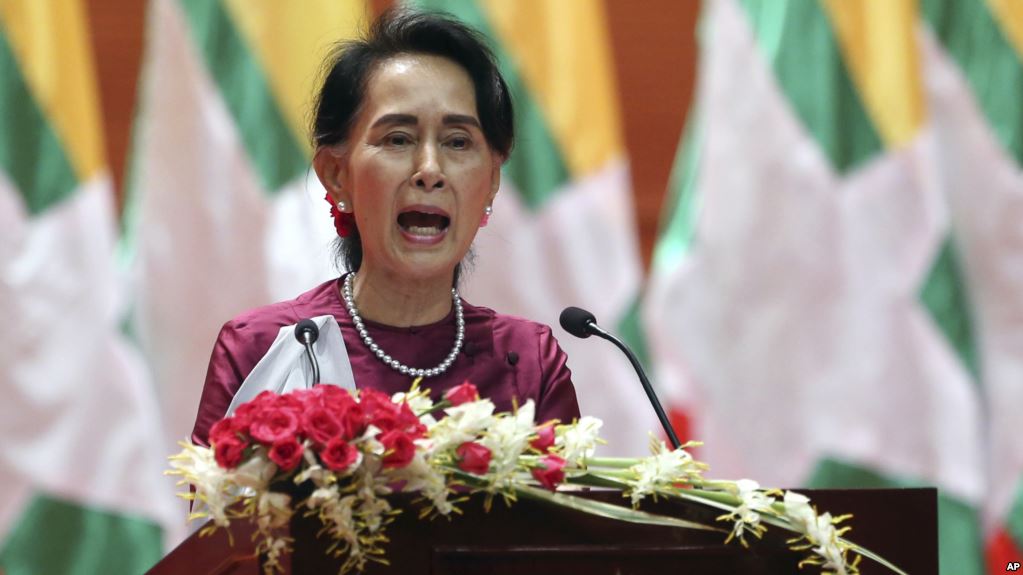Three Nobel Peace Prize winners sent a stark message to fellow laureate Aung San Suu Kyi on Wednesday: Bring an immediate end to the massacre of Rohingya Muslims in Myanmar’s Rakhine state, or face prosecution.
Human rights activists have accused Suu Kyi, Myanmar’s civil leader and a former political prisoner and activist during the country’s decades-long military dictatorship, of turning a blind eye to the crisis, increasingly described as a genocide. She has neglected to condemn the atrocities committed against Rohingyas, and has even rejected critical reports as “misinformation.”

As Myanmar’s government has tightened restrictions on desperately needed aid supplies and services in Rakhine state, Suu Kyi’s inaction has drawn rebukes from world leaders and sparked protests around the globe. Some activists have discussed revoking the Nobel Peace Prize she won in 1991 for “her non-violent struggle for democracy and human rights.”
At a press conference in Dhaka, Karman said Suu Kyi must “stop turning a deaf ear to the persecution of the Rohingya or risk being complicit in the crimes,” and “wake up or face prosecution.”
“If she fails to do so, her choice is clear: Resign or be held accountable, along with the army commanders, for the crimes committed,” Karman added.
In its recent State of the World’s Human Rights report, Amnesty International described the current abuse of Rohingyas as “a targeted campaign of ethnic cleansing.”
“Throughout 2017, millions across the world experienced the bitter fruits of a rising politics of demonization. Its ultimate consequences were laid bare in the horrific military campaign of ethnic cleansing against the Rohingya people in Myanmar,” the report noted. “The atrocities –- an unlawful and disproportionate response to attacks on security posts by an armed Rohingya group in August –- created the worst refugee crisis in decades in Southeast Asia.”
Myanmar has repeatedly denied access to international authorities and investigators, making it difficult to accurately grasp the scope of the situation. Reuters reporters Wa Lone and Kyaw Soe, who both covered the crisis extensively from within the country, have been detained since December for allegedly intending “to send important security documents regarding security forces in Rakhine State to foreign agencies abroad,” according to Myanrmar’s information ministry.
The Rohingya have long been victims of state-sponsored discrimination in Myanmar, where they have limited rights and are classified as illegal immigrants rather than citizens. Their plight rapidly and drastically worsened after Aug. 25, when Rohingya militants attacked government security posts ― triggering the extreme retaliation by state security and military forces.
“This is genocide … the torture, rape and killing of any one member of our human family must be challenged,” said Maguire. “We can’t remain silent. Silence is complicity.”

